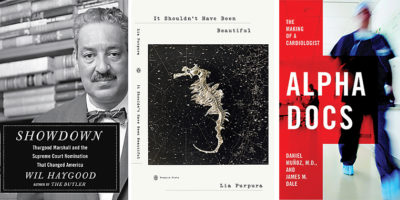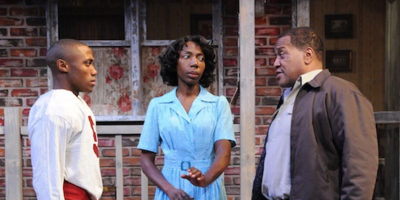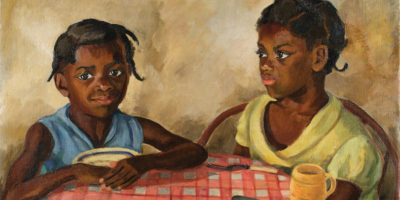Wondrous Beauty
Carol Berkin (Knpof)
Elizabeth Patterson Bonaparte—or Betsy, as she was called—was a Baltimore legend and international celebrity, a sort-of turn-of-the-19th-century It Girl. Born to a wealthy local family in 1785, she (as this book’s title suggests) was a beauty, attracting many prospective suitors, including the brother of Napoleon. Betsy wed Jerome Bonaparte and gave birth to his son, infuriating her powerful brother-in-law, who sabotaged the marriage. In some ways, that’s the least interesting part of the story, as Betsy deals with the fallout from this fairy tale gone wrong for the rest of her life. Berkin, the author of such books as Civil War Wives and Revolutionary Mothers, doesn’t see Betsy as a victim but, refreshingly, as a complicated and strong woman far ahead of her time.
Medusa’s Daughter
Jonathon Scott Fuqua/Steven Parke (Red GiantEntertainment)
Fuqua and Parke—local YA author and photographer/illustrator, respectively—have collaborated on this ambitious project, publishing Medusa’s Daughter simultaneously as a novel, graphic novel, and children’s book. That way, they can appeal to all reading levels and perhaps even encourage upward mobility by hooking kids into the story and getting them to migrate to the next level, which is more complex and difficult. Still, the graphic novel is at the heart of this trilogy, with Fuqua’s compelling story about a teenage girl working a carny sideshow after seemingly being abandoned by her parents. Illustrated by Parke’s photographs, rather than drawn panels, it has a cinematic quality that enhances the narrative sweep. It is eerily beautiful and memorable, the sort of thing that could lead readers not just to the other volumes, but also to the Greek myth that informs Fuqua’s story.
His Wife Leaves Him
Stephen Dixon (Fantagraphics Books)
Stephen Dixon tends to get labeled as a writer’s writer. No less an authority than Jonathan Lethem claims to “return again and again to his stories for writerly inspiration,” and many critics seem to believe that Dixon’s uncommon fiction, with its digressions from narrative norms, appeals mostly to fellow scribes. But Dixon, who taught writing at Hopkins for years, is actually a reader’s writer in that his work piques curiosity and then explores various emotions and responses to satisfy it. Here, the curiosity begins with the title, which implies infidelity and impermanence, but the stakes are considerably higher for Dixon’s protagonist, Martin, whose wife dies after a lengthy illness. Martin struggles with that irrevocable reality, examining and reexamining it through a series of internal monologues, detailed recollections, and imagined scenarios that reward careful reading.
























